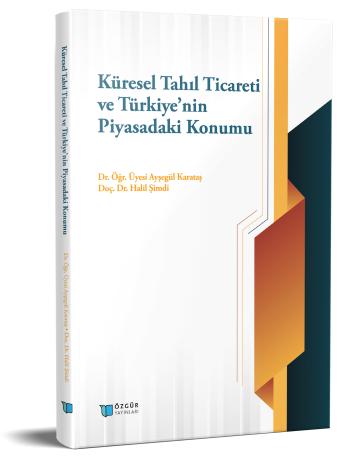
Global Grain Trade and Türkiye’s Position in the Market
Synopsis
Grain production is regarded as one of the most crucial elements of food security, economic growth, and social stability on a global scale. Crops such as wheat, maize, rice, and barley not only meet basic nutritional needs but also serve as feed for livestock and as raw materials for agriculture-based industries. Disruptions in grain supply, including price fluctuations and shortages, generate not only economic consequences but also direct impacts on national security and political stability. The grain corridor crisis that emerged in the aftermath of the COVID-19 pandemic and the Russia–Ukraine war has made strategic risks particularly visible for import-dependent countries. These developments have necessitated the consideration of grain production not merely as an agricultural matter but also as a security-oriented issue.
At the global level, the United States, China, and India stand out as leaders in grain production, while regionally, America, Asia, and Eastern Europe play active roles in grain trade. Africa, by contrast, remains almost entirely dependent on imports due to low production, making it the most vulnerable region in terms of food security. Product-based differentiations in global trade are also noteworthy: the United States dominates in maize, Asian countries in rice, and both the Far East and Eastern Europe in wheat. Climate change is partially reshaping these balances; in particular, favorable conditions for wheat cultivation in the northern belt are strengthening the position of Russia and Eastern European countries.
From Turkey’s perspective, grain production and trade hold critical importance for both the economic and social structure of the country. Although Turkey has historically been prominent in wheat production, its competitiveness has significantly weakened in recent years. Analyses indicate that Turkey is largely categorized among the “low-competitive countries.” While Turkey occupied a relatively more advantageous position in wheat at the beginning of the 2000s, it has since declined as other countries expanded their production and exports. In the case of barley, Turkey was initially among the stronger producers; however, particularly after the 2010s, it also lost its competitive advantage in this crop. By contrast, recent years have witnessed relative improvements in rice and maize, yet these developments have not been sufficient to elevate Turkey into strong competitive groups.
Structural problems lie behind Turkey’s current situation. High production costs, limited productivity, and climate-related risks constitute the primary structural challenges. State policies function as the main instruments shaping domestic price formation and import demand. Subsidy payments, floor price mechanisms, customs duties, and quotas are introduced to regulate the domestic market; however, they often remain insufficient to enhance competitiveness at the global scale. The price fluctuations that emerged in the aftermath of the pandemic and the Russia–Ukraine war have made Turkey’s import dependency more visible, thereby increasing the importance of policies aimed at reducing external dependence, particularly in strategic products such as wheat and barley.
The RCA, RSCA, and TBI scores used in this study provide significant insights into Turkey’s position in grain trade. These scores confirm that Turkey has weak competitiveness, particularly in strategic products such as wheat and barley. Analyses of the trade balance further demonstrate that Turkey is a net importer in many products. Product-based convergence analyses reveal that Turkey does not fall within the same clusters as strong countries, indicating that in the long run, it holds a disadvantaged position in international competition.
For Turkey to achieve a stronger position in future grain production, it must account for both the opportunities and risks posed by climate change. Efficient use of water resources, the dissemination of agricultural technologies, seed improvement, and sustainable production methods will play a critical role in enhancing productivity. In addition, diversification in foreign trade policy and the reduction of import dependency are regarded as necessities for both economic stability and national security. Turkey’s recent relative improvements in rice and maize indicate potential to strengthen competitiveness in these products, provided that the gains are sustained through appropriate policies. However, comprehensive structural reforms are required to regain a strong position in strategic products such as wheat and barley.
In conclusion, grain production for Turkey represents not only an economic priority but also a security-driven imperative. Global crises and climate change further amplify the significance of this priority. If Turkey overcomes its structural problems, enhances competitiveness, focuses on productivity, and implements sustainable agricultural policies, it could become a stronger actor in the global grain market. Otherwise, the current dependence on imports will persist, leaving national food security at risk.

